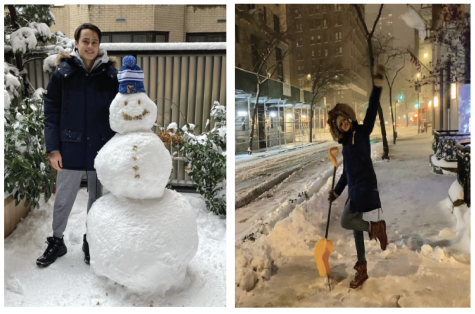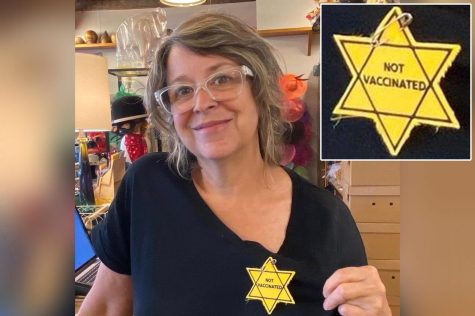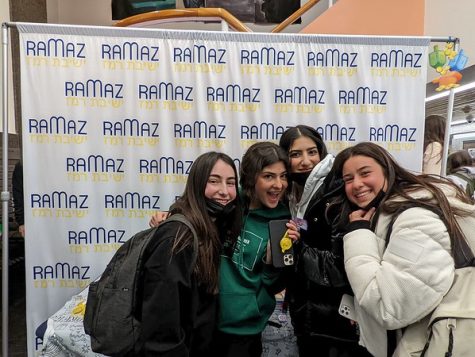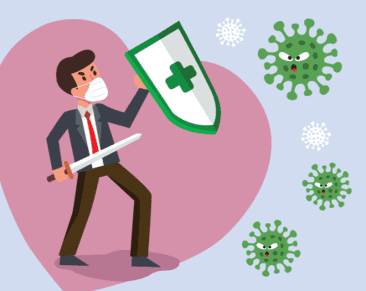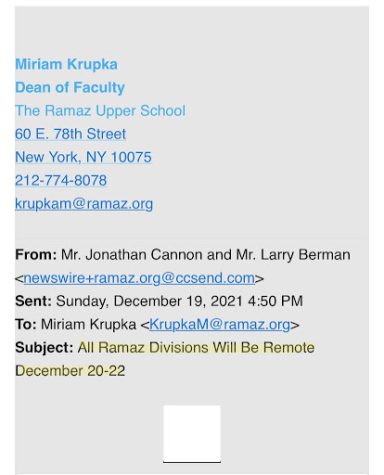Coronavirus: A Tale of Three Rabbis
On March 11, 2020, Head of School Mr. Jonathan Cannon sent out a school-wide email to all Ramaz parents, faculty, staff, and students explaining that school would be closed on Thursday and Friday, March 12 and 13. At that time, no confirmed cases of Coronavirus were reported within the Ramaz community, but Mr. Cannon felt his decision was justified given the increasing number of people reporting exposure to the virus and the “interconnectivity of Jewish day schools.” On Saturday night, March 14, Mr. Cannon announced the first confirmed case of Coronavirus within the Ramaz community, Rabbi Dov Pianko. On March 16 and March 17, Mr. Cannon announced that Rabbi Aviad Bodner and Rabbi Eli Slomnicki also tested positive for COVID-19. Luckily, the community’s three beloved rabbis are now feeling much better and have recovered from their illnesses. They have each volunteered to share their corona story with The Rampage to help educate our readers on a personal level about the varied presentations of this enigmatic virus.
Rabbi Pianko:
Rabbi Pianko believes that his viral symptoms began on Friday, March 6 when he developed a non-alarming cough. He stayed home from Ramaz on Monday, March 9, Erev Purim, but then felt better the following day, so he returned to work on the 11th. In the subsequent days, Rabbi Pianko exhibited chills, fatigue, loss of appetite, changes in his taste buds, and slight congestion. Over the course of several days, these symptoms subsided, but his cough persisted, and even worsened, as the week progressed. By the end of the week, his cough interfered with his sleep.
Rabbi Pianko decided to get tested, not because of his own symptoms, but because his roommate tested positive. Rabbi Pianko’s symptoms actually began four days before his roommate returned from a trip, so it is unclear to him whether their illnesses are related. Nonetheless, six days after Rabbi Pianko began to feel ill, on March 12, he was tested for the coronavirus at Columbia Presbyterian Hospital. Rabbi Pianko revealed that the testing process took fourteen hours. Before testing him for corona, the emergency room tested Rabbi Pianko for the flu and for pneumonia. He also had a chest x-ray performed. The doctors did not want to give him a corona test, but in the end they decided to do so.
The doctors did not want Rabbi Pianko to go home on public transportation, so they told him to assume he had tested positive. Hence, he was brought home in an ambulance and instructed to call 911 if his symptoms worsened. The emergency room did not take his information correctly and could not find his number, but did have his parents’ address. They sent the police to his parents’ house to inform them that he tested positive. Rabbi Pianko’s parents conveyed the message to him after Shabbat.
Rabbi Pianko stated that his illness was much lighter than his roommate’s. While his roommate was vomiting and sickly looking, Rabbi Pianko did not share these symptoms. He explained that the flu, during which he could not get out of bed, was a much worse sickness for him than COVID-19 was.
The decision to alert others about his positive test was an easy one for Rabbi Pianko. He immediately notified Mr. Cannon. Rabbi Pianko admitted that he did not remember exactly whom he spoke to each day, and therefore, he thought it was important to release his name to the whole school. He understood that perhaps some people prefer not to be as open, since they fear that a stigma will come along with a positive test and worry about being blamed for spreading the virus. However, Rabbi Pianko wasn’t worried about this stigma, and he felt it was more important to warn people.
Thankfully Rabbi Pianko now feels much better and is back to his usual energetic self.
Rabbi Bodner:
Rabbi Bodner’s first symptoms—a runny nose and a fever of around 102—began the day before Rabbi Pianko’s started. He experienced a fever for three days, chills, and body aches all over. In the evenings, his fever would go down, and then it would rise in the morning. He also had chest pain, coughing, and general weakness. After three days, his fever went down.
Rabbi Bodner never got tested. When sick, he went to the hospital but was dismissed without testing. His wife, however, who had the same symptoms with the addition of a lack of smell and taste, went to the urgent care center on 104th and Broadway and was tested. This is likely because she explained that she had a newborn baby and because she went for testing about six days after he did, at which point awareness about the virus and availability of tests had increased. Rabbi Bodner stated that unlike his previous flu symptoms, his corona symptoms lingered, and it took him about two and a half weeks to fully recover.
Rabbi Bodner explained that his wife did not receive her positive test results until a week after she was tested, almost two weeks after he first presented with symptoms. At that point, it was less important to notify people of his illness, but he did so because as a rabbi of a shul and a teacher in a school, he is involved in so many social circles. He wanted people to take their symptoms seriously. He was nervous about the elderly and those with compromised health who may have been exposed and were suffering with viral symptoms.
Rabbi Bodner understands why some people prefer to keep their corona status private, as it may have ramifications to how they are treated after the virus subsides. According to the CDC guidelines, one is free to go about their business three days after symptoms subside. However, others may be afraid to be in contact with someone who had corona, even after that time frame. For example, the super in Rabbi Bodner’s building still does not allow him to do his laundry in the building.
Although home and in quarantine, Rabbi Bodner explained that he is still very busy. He and his wife have three children, all under the age of three, to care for. He also is busy with his shul obligations of giving classes and checking on congregants. Thankfully, Rabbi Bodner has the strength to continue his obligations and is now feeling fully recovered.
Rabbi Slomnicki:
Rabbi Slomnicki began feeling ill on March 10, around 5 days after Rabbi Pianko and Rabbi Bodner. His symptoms began with a headache and chills, but he never had a fever. His symptoms did not change; they only intensified. Two days after onset he felt “knocked out.” Although he was never tested for the flu, Rabbi Slomnicki did think he had the flu earlier in the year, and stated that his flu symptoms were worse than his corona symptoms. With the flu, he was in bed for a full 48 hours. However, with corona, Rabbi Slomnicki did not feel as ill and really only got tested because his wife urged him to after being in contact with others who tested positive. He was tested at an urgent care center in Roslyn Heights and obtained his results five days later. Rabbi Slomnicki’s wife also caught the virus and had similar symptoms to his with the addition of losing her sense of smell and taste. Rabbi Slomnicki stated that overall, his symptoms, including a slight cough, were mild, and describes his illness as “corona light.”
While Rabbi Slomnicki tried to think of the names of people he came closest in contact with, he said it was obvious to him that he wanted to release his name to his school and shul communities. He explained that it was the least he could do to help the people around him.
Despite experiencing symptoms from the virus, Rabbi Slomnicki kept busy at home. He has four children who need help with their online schooling and had to take care of housework. On Shabbat, he enjoyed the break from technology and was able to spend time davening and reading with his children. Rabbi Slomnicki now feels well and fully recuperated.
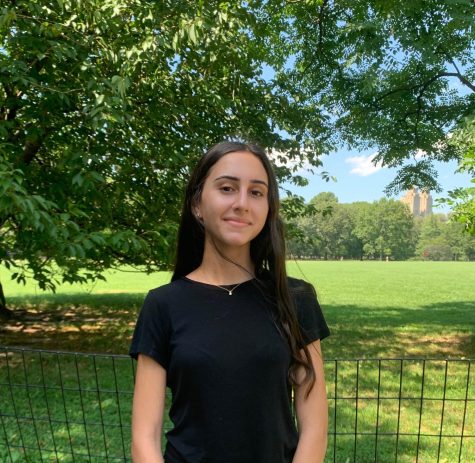
Caitlin Levine loves journalism, is an avid writer, and is thrilled to be an editor-in-chief of The Rampage. Caitlin has actively contributed to The Rampage...


